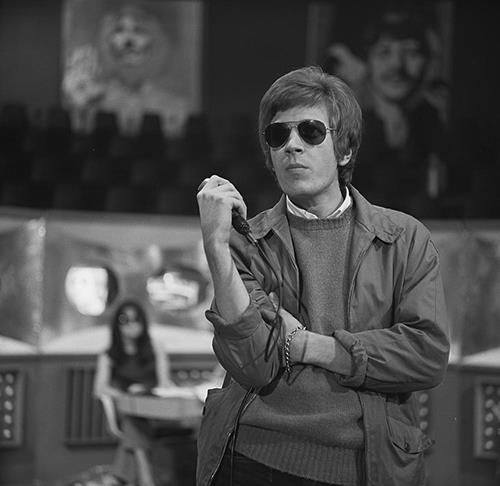Pop legend Scott Walker dies at the age of 76

Scott Walker (deceased)
March 29, 2019
Scott Walker began his career as a teen icon and ended it as one of the foremost figures in experimental pop, influencing countless artists to expand their horizons.
His record label 4AD announced Walker’s death on Monday, March 25. He was 76.
“I think he’s probably been my idol since I was a kid,” said the late David Bowie when asked about Walker in a 1997 Radio One interview.
Imagine if Joe Jonas started making orchestral albums featuring story songs inspired by French avant-garde films and sociopolitical issues like the Soviet invasion of Czechoslovakia, and you would have something resembling Walker’s career.
The Ohio-born Walker broke out with in the mid-1960s with The Walker Brothers. The trio were not brothers or named Walker, but despite this, they became a huge success in the U.K. The group had two U.K. number one hits, “Make It Easy on Yourself” and “The Sun Ain’t Gonna Shine Any More.”
“I was not cut out for that world,” said Walker in an interview with Guardian writer Sean O’Hagan. “I love pop music, but I didn’t have the temperament for fame.”
The group had a polished folk-rock sound that relied on their three-part harmonies. The band, and Walker when he became a solo artist, never achieved as much success in the United States as in the British Isles. The songs are solid examples of ‘60s folk but lack the ambient that would define Walker’s later work.
Though many of his albums are worth listening to, his classic is 1969’s “Scott 4.” The album is the best encapsulation of the baroque pop that made him a legend. Walker’s unique approach to songwriting was what separated him from other artists of any era. Other pop artists such as Frank Sinatra, whose deep voice and delicate and precise phrasing resembled Walker’s, used orchestras, but few created the dark atmosphere that Walker did.
“Essentially, I’m really trying to find a way to talk about the things that cannot be spoken of,” he said in the aforementioned Guardian interview. “I cannot fake that or take short cuts. There is an absurdity there, too, of course, and I hope that people pick up on that. Without the humor, it would just be heavy and boring.”
His songs were often stories, filled with strange details, unusual characters and mystical themes. The first track on “Scott 4,” “The Seventh Seal,” is based on the French film of the same name about the Black Death. The song’s lyrics fixate on death and destruction as society collapses from the plague.
The album is full of character studies, with some songs transitioning between different interconnected people. “Hero of the War” is a cynical realistic view of the glorification of nationalism masked by an upbeat instrumental spearheaded by two interlocking guitars.
The first three verses have Walker speak to the “Hero’s” mother while the final verse has Walker address the hero himself. The song is a heartwrenching display of how nationalistic platitudes can do little to comfort those who are most affected by war the people who have been maimed or had loved ones die due to conflict.
His final album was the soundtrack for the 2016 film “The Childhood of a Leader.” The grandeur and experimentation that Walker displayed throughout his career made him a perfect film composer. A fitting twilight for one of the greatest adventurers in popular music.


